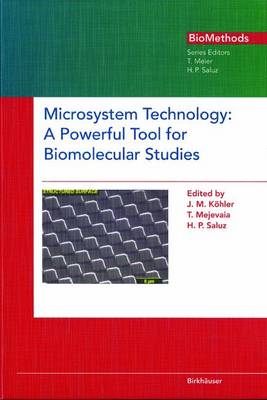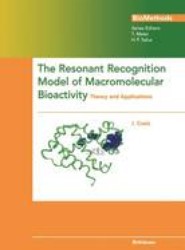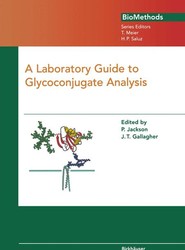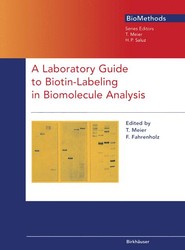(To see other currencies, click on price)
MORE ABOUT THIS BOOK
Main description:
Biomolecular studies are the trial of Man to understand how Nature manages information at the molecular level. The understanding of molecular informa tion handling in nature is essential for the molecular optimization in chem istry, molecular biology, molecular pharmacology and therefore - as an ex ample - for the development of specifically acting drugs. The famous recent method of technical information management is digital electronics. Over the past few years, evidence has arisen that computerized and molecular information managements have many similar and overlapping aspects. For example, both technology and nature use digitized information and both use small structures for the efficient handling of information. Furthermore, they optimize their processes in order to gain a maximum of information with a minimum of invested energy. During the last two decades, novel experimental techniques in biomolec ular sciences have paved the way for artificial biomolecular optimization. In the same time interval, the progress of micro system technology has been extended from the field of digital electronics and sensing to micro liquid hand ling, and the field of chip-supported substance handling began. It appears that the "marriage" of physical micro technology and molecular processing will be consummated soon. The contact of both fields has been realized in for ex ample DNA chips. Such connections will also become relevant in additional fields in the near future. Biomolecular investigations are the first to profit from these fast growing scientific and technical connections between micro systems and molecular sciences.
Contents:
1 Molecular building principles in nature.- 2 Robotic equipment and microsystem technology in biological research.- 3 Components and systems for microliquid handling.- 4 Nanotiterplates for screening and synthesis.- 5 Chip technology for micro-separation.- 6 Rapid multisample PCR in miniaturized ultrathin-walled microwell plates.- 7 Generation of large libraries.- 8 Generation and screening of solution-phase synthetic peptide combinatorial libraries.- 9 Using oligonucleotide probe arrays to access genetic diversity.- 10 Generation of libraries by print technologies.- 11 Synthesis and screening of bead-based libraries.- 12 Sensors for biomolecular studies.- 13 Fluorescence detection of single molecules applicable to small volume assays.- 14 Fluorescence correlation spectrometry (FCS): Measuring biological interactions in microstructures.- 15 Scanning force microscopy: A microstructured device for imaging, probing, and manipulation of biomolecules at the nanometer scale.- 16 DNA resequencing, mutation detection and gene expression analysis of oligonucleotide microchips.- 17 Miniaturized arrays for DNA analysis.- 18 Manipulation of particles, cells and liquid droplets by high frequency electric fields.- 19 Optical trapping and manipulation.- 20 Computer modeling of protein, nucleic acid, and drug structures.- 21 Optimizing structure and function relationship of nucleic acid molecules.- 22 Optimisation of molecular function.- 23 Appendix.
PRODUCT DETAILS
Publisher: Springer (Birkhauser Verlag AG)
Publication date: October, 2012
Pages: 581
Weight: 1034g
Availability: Available
Subcategories: General Issues
From the same series





